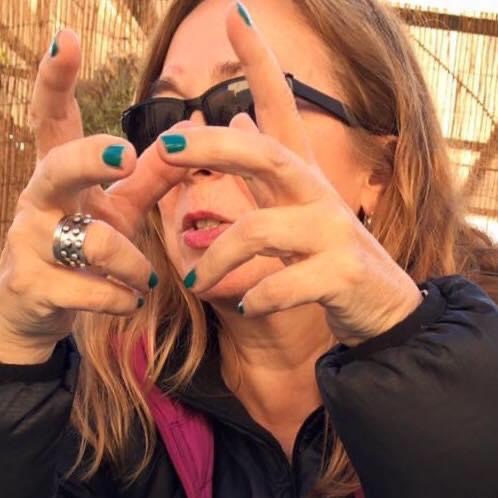Search
To search for an exact match, type the word or phrase you want in quotation marks.
A*DESK has been offering since 2002 contents about criticism and contemporary art. A*DESK has become consolidated thanks to all those who have believed in the project, all those who have followed us, debating, participating and collaborating. Many people have collaborated with A*DESK, and continue to do so. Their efforts, knowledge and belief in the project are what make it grow internationally. At A*DESK we have also generated work for over one hundred professionals in culture, from small collaborations with reviews and classes, to more prolonged and intense collaborations.
At A*DESK we believe in the need for free and universal access to culture and knowledge. We want to carry on being independent, remaining open to more ideas and opinions. If you believe in A*DESK, we need your backing to be able to continue. You can now participate in the project by supporting it. You can choose how much you want to contribute to the project.
You can decide how much you want to bring to the project.
A lot has been said and written about art in general and somewhat less about criticism in particular. Criticism and creation share a first letter and the same territory, though it’s a place that is a lot less comfortable than one might believe or want to find. A critical or creative voyage needs for its navigation a constant disarticulation or modification of the discourses that fills its sails.
And one thing that is indispensable for criticism and art is the continuous reconsideration of its legitimacy, the authority of its own discourse, to avoid falling into the void of a perverse mutation of this authority into an orthodoxy or power model. I agree in thinking that criticism, like contemporary art production, is always a condition to elaborate knowledge, an attitude closer to action than composure. That implicates our understanding of the past and capacity to construct a future.
In a discussion about criticism, curating and art, the lecturer Martí Peran presented an interesting reflection full of critical judgement and an aversion to the frivolity of culture and subsidiary nature of criticism converted into mere cultural journalism. In the first minutes of the video (more material available in the platform Arts Coming), Peran insists on dismantling the role of the critic and curator of exhibitions, the first having been converted into a commentator and the second an administrator at the service of the institutions. Criticism and curating have advanced in their professionalization, in the mercantile sense of the term, at the cost of evicting any depth from their efforts. An interesting reflection upon the conventional forms of criticism and how these have colonised other cultural contexts overwhelming them with a neoliberal rhetoric that creates duplicitous concepts such as ’pluralism’, ’transversality’ or ’interdisciplinary’. The critic offers us a new reading that supplants the disciplines inviting us to resist the tautology of art that refers to art.
In the same recording of his analysis, Martí Peran in the second part of the conversation broaches the structures and function of what we call contemporary art. Here the condition of the simulacra and spectacle of art is confronted with the need for art production to assume the historical conditions of the present and work towards creating places to negotiate with the real, without escapisms. The idea of art is expressed as a space and an action of a utopian spirit capable of not succumbing to particular conditions of the real, imposed as suitable conditions. “When art is recognised as art, it is rapidly neutralised as merchandise”, with this affirmation Peran points out that breaking away from the idea of art to become something ‘strange’ far from being a conflict is the true mission of art.
And to talk about art is not about defining languages or codes, so much as paying heed to places for action. In these times of absolute iniquity of institutional culture, prone to acts of vandalism and social terrorism, the words of Martí Peran are more indispensable than ever. There is a lot to be done and even more to abolish. We’ve all been caught with our pants down!

Pilar Bonet Julve is a researcher and teacher. She has a degree in Medieval History and a PhD in Art History from the UB, where she teaches contemporary art and design, art criticism and curating. She is interested in the overflowing and political spaces of art, she is not motivated by heraldic criticism or the vase exhibition. A specialist in the life and work of the Catalan medium and artist Josefa Tolrà, she follows in the footsteps of visionary women as an experience of new humanity. She has recently presented exhibitions on irregular creativity: Josefa Tolrà and Julia Aguilar, Les Bernardes de Salt; ALMA. Médiums i Visionàries, Es Baluard Museum, Palma; La médium i el poeta. An astral conversation between Josefa Tolrà and Joan Brossa, Fundació Brossa. Writing and editing pacifies his soul. She manages the research group Visionary Women Art [V¬W].
www.josefatolra.org
@visionarywomenart
@josefatolra
@pilarbonetjulve
@artscoming
"A desk is a dangerous place from which to watch the world" (John Le Carré)